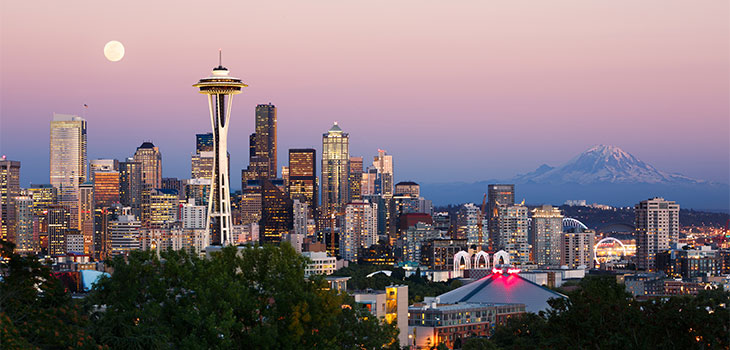There is something freeing about stepping away from constant notifications and the noise of digital life. Traveling off grid gives people the chance to reconnect with nature, slow down, and clear their minds. But completely disconnecting does not mean leaving safety behind. Modern technology can help you stay secure and prepared even when cell service disappears. The key is knowing how to use it wisely.
Many travelers think off grid adventures mean turning off every device, but the reality is more balanced. Technology can make exploring remote areas safer and less stressful without ruining the feeling of escape. With the right tools and a bit of planning, you can enjoy solitude while staying connected enough to handle emergencies.
Start With Smart Preparation
Before heading off grid, planning matters more than anything. Good preparation reduces risk and keeps small problems from becoming big ones. Download detailed offline maps from apps like Gaia GPS or AllTrails so you can navigate without service. These apps use your phone’s GPS signal, which still works without data. You can mark campsites, water sources, and potential hazards long before you leave.
Another essential step is sharing your itinerary with someone you trust. Let them know where you are headed and when you plan to return. Technology helps here too. Platforms like Google Maps allow you to share your live location with specific contacts, so someone always knows your approximate position even in areas with weak signal.
Bring Devices Built for Remote Conditions
When exploring rural areas, coastal regions, or mountains, standard smartphones might not be enough. Devices like satellite communicators bridge the gap between total isolation and constant connection. The Garmin inReach Mini and Zoleo Messenger allow two way text messaging and SOS alerts through satellite networks. They are small, lightweight, and give peace of mind that help is always reachable.
Solar chargers are another quiet form of security. Compact panels or power banks that recharge with sunlight can keep your gear running for days. They fit easily in a backpack and make a big difference when traveling far from outlets.
Backup batteries are equally important. Cold weather, heavy use, or altitude can drain batteries quickly, so carrying a second power source ensures that maps, lights, and safety tools stay active.
Trust but Verify with Location Tracking
If you are heading into remote terrain, location tracking can be life saving. GPS trackers like Spot Gen4 allow you to send preset messages or share your coordinates at intervals. This means that even if you lose communication, others can trace your path. Some travelers attach these trackers to backpacks or bikes for extra security.
Smartwatches are another underrated safety device. Models from Garmin, Apple, or Coros include GPS and emergency SOS features that can send alerts to chosen contacts. They also monitor your vitals, which can be useful in high altitudes or extreme weather.
Stay Alert with Environmental Tools
The environment changes quickly, especially in unfamiliar terrain. Simple weather apps and offline forecasting tools are essential for avoiding danger. Windy and MyRadar are useful for tracking storms, temperature drops, or high winds. Some apps even show lightning distance and wildfire activity, which helps travelers adjust their routes in real time.
Water filtration systems with built in UV lights, like SteriPEN, use technology to purify water on the go. This kind of safety gear protects travelers from illness without relying on bulky filters.
Thermal blankets and small emergency beacons with sound and light features are equally valuable. They can attract attention if you need help at night or get lost.
Learn How to Disconnect the Right Way
The key to successful off grid travel is balance. Many people fall into extremes, either staying glued to screens or cutting off all technology completely. Neither approach works well. Use technology as a tool, not a crutch. Keep devices on airplane mode when you do not need them. This preserves battery life and helps you stay mentally present.
Turn checking your devices into a scheduled habit instead of a constant reflex. Set specific times to check GPS or messages. The rest of the time, stay focused on your surroundings. Notice the sounds, smells, and movement of the landscape. Traveling off grid is meant to restore awareness, not replace it with screen time.
Personal Comfort Still Matters
Being off grid does not mean giving up comfort. A headlamp with rechargeable batteries ensures you can navigate safely at night. Lightweight tech accessories like rechargeable hand warmers or electric lighters make a big difference in extreme conditions.
Compact Bluetooth speakers are also a favorite for many travelers. Music can help break long stretches of silence without disturbing wildlife or other explorers. Just remember to keep the volume low and stay aware of your surroundings.
The Role of Smart Packing
Technology is only useful if it is organized. Pack cables, batteries, and devices in waterproof bags to protect them from rain or humidity. Use color coded pouches so you can find gear quickly in low light.
Labeling devices with your contact information can help if something is misplaced during a group expedition. Keep one universal charging cable and one dedicated backup to reduce clutter.
Traveling Off Grid in Different Environments
Each type of terrain has its own challenges. In deserts, solar charging becomes especially valuable, but heat management is crucial to prevent battery damage. In forested regions, prioritize waterproof cases and strong lighting. In cold climates, keep electronics close to your body to preserve battery performance.
For ocean or island trips, waterproof satellite messengers and floatable cases are essential. Saltwater and sand can destroy ordinary electronics quickly, so seal everything carefully.
The Mental Side of Off Grid Travel
Technology aside, going off grid changes the way people think and feel. It removes background noise, both literal and emotional. Many travelers describe feeling more creative, less anxious, and more appreciative of simple things. However, the adjustment period can be challenging. The first day without constant updates can feel uncomfortable, but that discomfort is part of the reset.
Eventually, the silence becomes calming. The body relaxes and time slows down. This is when travelers realize that technology is not the enemy, it is a support system for independence. When used correctly, it gives you the confidence to explore farther without fear.
The Future of Off Grid Travel
As technology advances, off grid travel will only become safer and more appealing. Solar technology is improving rapidly, batteries last longer, and satellite networks cover more of the planet. Portable internet hotspots that connect through satellite are becoming accessible for ordinary travelers. These innovations make it possible to explore areas once considered unreachable.
At the same time, the appeal of disconnection continues to grow. Travelers want meaningful breaks from routine. They want experiences that make them feel small in the best possible way. The more connected our daily lives become, the more people crave balance through solitude.
Future trips may combine advanced safety gear with simple living, like digital minimalism in nature. Some eco lodges already design off grid stays that use renewable energy but avoid Wi Fi entirely. The goal is not to remove technology, but to reshape its role.
Finding Freedom Responsibly
Going off grid is not about running away from technology, but redefining how you use it. The best explorers know that preparation creates freedom. Using smart tools gives you the confidence to go farther, stay longer, and explore with peace of mind.
There is a thrill in standing on a trail with no signal and realizing that you are perfectly fine. You have the knowledge, tools, and awareness to take care of yourself. The silence around you is not isolation, it is safety earned through preparation.
The next time you plan an adventure, think of your technology as a quiet companion. Use it to navigate, stay safe, and learn about the world around you. Then, put it away and enjoy the reason you traveled in the first place, to experience the world as it is, without noise, without pressure, and without interruption.




